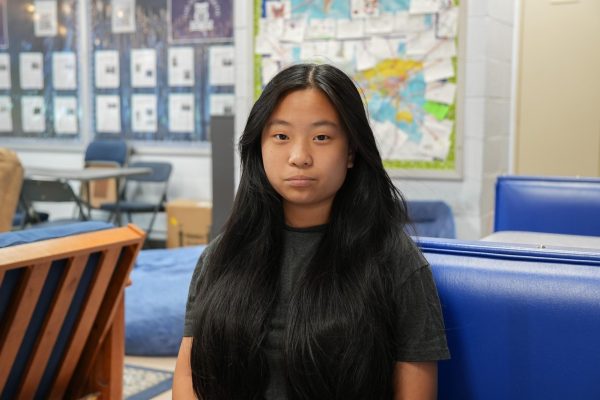
When students gathered in the library for this year’s Henrietta Lacks Awareness Event, a tradition that continues to grow each year, few paused to consider the figure behind it all: science teacher Sarah Loew. This year’s event, which raises money and awareness for the Henrietta Lacks Foundation, raised over a thousand dollars and showcased Ms. Loew’s dedication as a teacher.
The event, hosted annually by the Biomedical Ethics class, raised over and drew in a crowd of nearly 100 attendees, the most successful turnout in its history. “It started as a small project with just a few students, and now it’s become a moment for the whole community,” said Mrs. Loew. “Each year, I’m amazed by the passion students show when they realize how science intersects with history, ethics, and identity.” After Henrietta Lacks died from cervical cancer, scientists extracted some of her cells, which had rare properties that have become crucial to scientific research over the years. These cells were taken without Ms. Lacks’ consent, and the Henrietta Lacks Foundation raises awareness for those “who were involved in historic research cases without their knowledge, consent, or benefit.”
Mrs. Loew has kept this event going for the past few years, and in her 14 years of teaching at Townsend Harris, she has shown similar dedication in multiple areas. Whether through classroom lessons or projects like the Lacks event and Science Olympiad, students and colleagues alike recognize her unique ability to meet people where they are.
“Mrs. Loew is one of the greatest teachers I had at Townsend Harris,” said senior Anton Rud. “Coming into freshman year, she helped me adjust as a new Harrisite and brought out my curiosity in STEM. Even though I’m not pursuing biology, the way she taught us to think critically and creatively has stayed with me.”
“I’m in my second year of research with her now,” said senior Adam Gosine. “She doesn’t just mentor us through our projects—she checks in on our well-being, celebrates our progress, and helps us refine how we think about the real-world implications of our work. She’s the type of teacher who stays after class to help you, not because she has to, but because she genuinely cares.”
Junior Fariba Akter, who is currently in her AP Environmental Science class, said, “I came in intimidated by the workload, but she created an environment where we felt supported instead of judged. She explains things patiently and encourages us to speak up and ask questions. I’ve learned to be more confident in my thinking because of her.”
“She always connects the science back to real life,” said junior Akida Chowdhury, who had Mrs. Loew for biology. “Whether we were learning about genetics or sustainability, she’d make sure we understood why it mattered. And when things got overwhelming, she noticed. She always notices.”
Her colleagues said they’ve observed similar qualities.
“Her emotional intelligence is off the charts,” said Shi Bing Shen, who co-teaches AP Environmental Science with her. “There are students who might’ve slipped through the cracks in another classroom, but with her, they thrive. She creates this space where students want to do well because they know she believes in them.”
Christine Gallagher, who also teaches biology, echoed this sentiment: “She brings so much empathy and energy into the department. Working with her has made me rethink how I approach lessons. She pushes us to see how science connects to the world—and how our teaching can have lasting effects.”
According to Assistant Principal Ellen Fee, Mrs. Loew’s influence goes beyond her classroom. “She’s a cornerstone of our science department. From coordinating events like the Henrietta Lacks Awareness Event to leading Science Olympiad, her dedication is unmatched. She uplifts not just students, but staff too.”
This year, Mrs. Loew also helped guide the Science Olympiad team through a regional competition, where she said she admired the students’ resilience and collaboration: “It was inspiring to see them work together under pressure, support one another, and take pride in their achievements.”
Reflecting on her time at Townsend Harris, Mrs. Loew shared, “After 14 years, I’m always motivated by how much I learn from the students. Each day, students enlighten me with their perspectives on controversial issues, enhance my understanding of different languages and cultures, while challenging my understanding of science.”
She added, “I try to keep students engaged by focusing on real world issues, examples, and applications while developing career readiness skills. I want them to leave my class not just knowing content, but also how to think for themselves.”
“She helped me realize that I want to go into environmental law,” Fariba said. “She showed me how science isn’t just facts. It’s a way to protect what matters.”
When asked what she hopes students take from her class, Mrs. Loew said, “I hope they develop a greater appreciation for their bodies and the environment and hence the ability to make healthy choices. I also hope to instill the importance of critical thinking to evaluate information, question assumptions, and make informed decisions.”





























